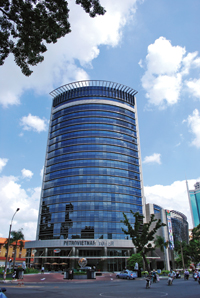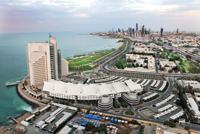
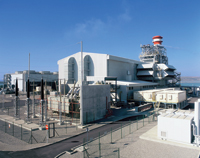 Kuwait’s electricity needs have risen
Kuwait’s electricity needs have risen
DEMAND is rising fast for power and water in Kuwait, pushing the country towards an ambitious public-private partnership strategy to increase capacity.
The battle to keep the lights on – and the air conditioners running – is no easy task in Kuwait.
The gap between installed power and water generating capacity and demand is tight, which is particularly problematic in the summer.
Kuwait’s electricity needs have risen at an annual rate of about 7 per cent, which has put pressure on its power and water ministry to build more plants. The ministry expects Kuwait’s peak power demand to almost double to 22,500 megawatts (MW) by 2020, from 12,060 MW last summer.
It is a similar story for water, with demand expected to rise to 3.25 billion litres per day in 2020 from 2.02 billion litres last year.
As a result, Kuwait plans to add 11,300 MW of power and 2 billion litres of water capacity over the next seven years, even after decommissioning parts of its fleet of ageing power and desalination facilities that were built in the 1980s.
Building out capacity on this scale will be a challenge. The government of Kuwait decided to let private companies build, operate and maintain parts of its infrastructure, including power and water. It set up the partnerships technical bureau (PTB) in 2008 to implement the country’s public-private partnership (PPP) programme.
The Al Zour North water and power plant is the first PPP project in Kuwait, with a generating capacity of 1,500 MW and a desalination capacity of 486 million litres per day. Construction began last month.
Through adopting the PPP model in its utilities sector, Kuwait hopes to improve efficiency.
“The country laid down the policy of promoting infrastructure development, including for power, by introducing the vitality of the private sector,” said the Japanese export credit agency Japan Bank for International Cooperation (JBIC), one of the project lenders, in a statement.
According to the PTB president, Adel Al Roumi, the government wants to reduce its role as an operator and become more of a regulator. Al Zour is the first power plant in Kuwait to be built, operated and maintained by the private sector, making Kuwait the last Arabian Gulf country to adopt the PPP model in its power sector.
As the first of its kind in Kuwait, the journey from planning through tendering to financial close has taken more than three years. In June 2012, the project was put to a vote in Kuwait’s parliament. Members elected to scrap it, but it was later revived.
With Al Zour North successfully financed, future projects are expected to be tendered at a faster pace. According to Al Roumi, a request for qualification to double the power capacity of the Al Zour North plant will be issued this month.
Three more phases at the same site will follow. There will be a second, similar plant built at a site south of Al Zour. It will have a capacity of 2,500 MW and 568 million litres of water per day.
Smaller power plants will be procured directly by the power and water ministry.
Plants will be commissioned at Sabiya and Al Zour South in 2015 with a capacity of 500 MW each. Two desalination plants of 227 million litres of water per day will also be installed at Doha South in 2017 and the following year.
A 136 million litre desalination plant will be commissioned at Al Zour South in the next few months.
While Al Zour 1 and 2 will use combined cycle gas turbines (CCGT), other projects are planned to run on oil.
Gas burns cleaner and is more efficient, but is scarce, while Kuwait produces plenty of oil.
The country imports nearly half of the gas it needs for its power stations as liquefied natural gas (LNG), costing about $1.4 billion a year.
Plans to boost production by exploiting the country’s unconventional gas resources have stalled.
“Kuwait Petroleum Corporation [KPC] doesn’t have enough gas so they decided not to do gas for those ones,” says Suhaila Marafie, the director of the power and water ministry’s department of studies and research. “Originally, Zour North had an environmental impact for a steam turbine project, not a gas project, but in December 2006 it was retendered.
“Before we retendered, KPC sent us a letter saying to ‘move to combined cycle, we have enough gas’. In 2010, they said that they don’t have enough gas so we should go back to steam turbines.
“But since Al Zour North 1 and 2 were already with PTB, they would be combined cycle, but future projects would be steam turbines.”
Leila Benali, the Middle East director at IHS Cambridge Energy Research Associates, says: “In our base case, we assumed that thermal boilers would be added into the fleet continuously because of the supply and demand balance.
“We were seeing some role for CCGTs in the past, [but] there is probably a concern in the future over that ... We are talking about a potential serious [gas] shortage over the next five to six years in a business-as-usual scenario.”
In a bid to reallocate some of its gas, Kuwait has attempted to conserve it in other industries, she says. “For example, in the petrochemicals projects they tried to impose that all future crackers would be dual-fuel using naphtha or ethane but that’s quite difficult to implement because the economics are not the same,” says Benali.
“Even if they were not facing a really tight supply-demand balance for gas, they would still want thermal boilers in their fleet, because that will help them balance everything including their Opec policy,” says Benali.
As an Opec member and a country with most of its oil located alongside its gas reserves, increasing gas production has consequences on the country’s oil production.
The thermal power plants “can use any kind of oil, even high-sulphur”, says Marafie. “We use the fuel that we cannot sell ... But the problem is the efficiency and the residues.”
The choice of oil as a fuel raises environmental concerns. “In Kuwait it’s more of a local issue,” says Benali.
“They would be concerned about emissions from a global emissions standpoint, but the concerns are mostly about local pollution issues. They would be very careful on that front – probably more than others in the region.”







































































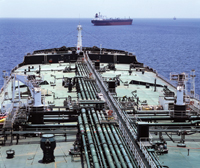


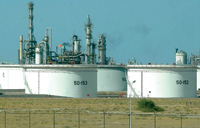
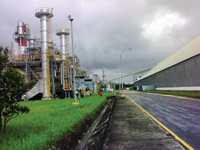

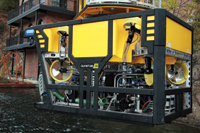
.jpg)

